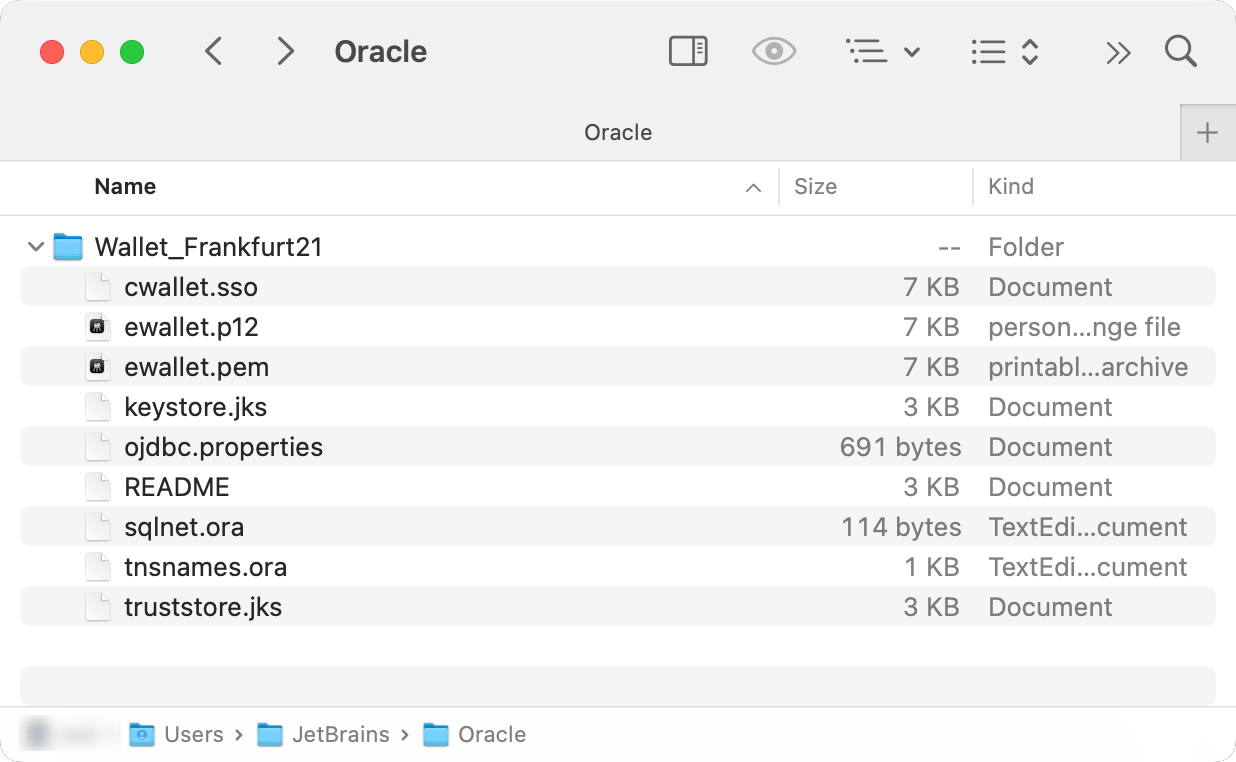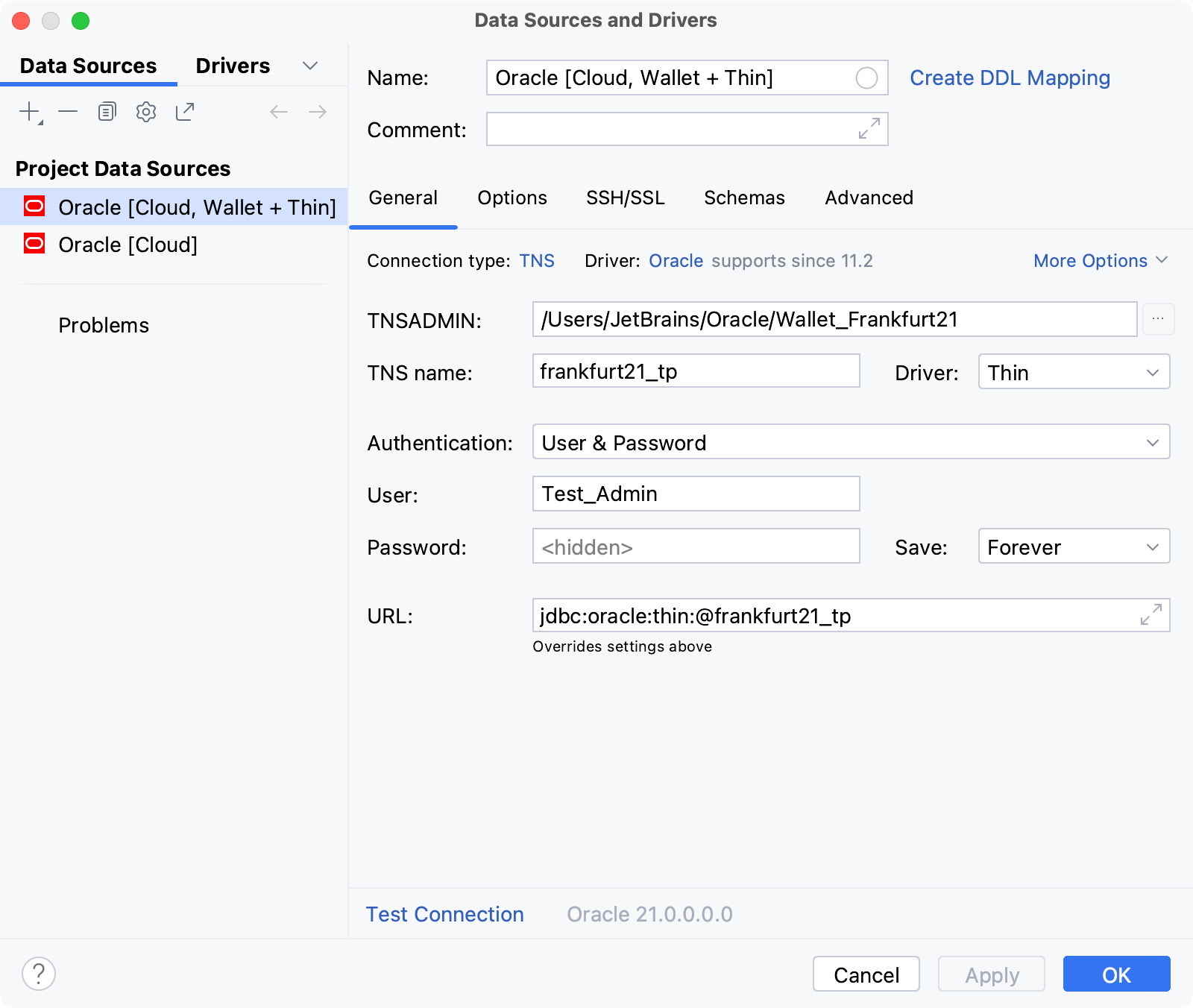Create an Oracle Cloud data source using Wallet and Thin driver
Official documentation and software
For full information about Oracle, refer to the official documentation.
To download Oracle database software, refer to the official software downloads.
For more versions of Oracle JDBC driver, refer to the official JDBC driver downloads.
Oracle Wallet is a set of files that stores all the user credentials such as certificates, certificate requests, and private keys. You can create a wallet by using the Oracle tooling or ask your Oracle server administrator to generate the wallet. For more information about Wallets, refer to Creating and Managing Oracle Wallet and Download Client Credentials (Wallets) at docs.oracle.com.
Requirements
Running Oracle Cloud instance with access permissions for your user.
Oracle Wallet.
Preparing the wallet files
Prepare a ZIP archive with wallet files. For more information about downloading a Wallet, refer to Download Client Credentials (Wallets) at docs.oracle.com.
Create a directory (for example, ~/Oracle/).
Extract the ZIP archive with wallet files to the created directory.

Creating the Oracle data source
To connect to the database, create a data source that will store your connection details. You can do this using one of the following ways:
In the main menu, go to and select Oracle.
In the Database Explorer ( ) , click the New icon (
) in the toolbar. Navigate to Data Source and select Oracle.

From the Connection type list, select TNS.
From the Driver list, select Thin.
In the TNSADMIN field, click the Open button (
) and navigate to the directory with extracted wallet files (in our case, ~/Oracle/Wallet_Frankfurt21/).
Specify the credentials for your connection.
In the TNS name field, use the automatic completion (Ctrl+Space) to select which service name to use (the values of an alias are given in the tnsnames.ora file provided with wallet).

In the User and Password fields, type your user credentials.
To use no password, leave the Password field empty.
To delete a once entered password, right-click the Password field and select Set Empty.

Alternatively, enter the JDBC URL into the URL field.
Ensure that the connection to the database can be established using the provided details. To do that, click the Test Connection link at the bottom of the connection details area.

In case of any connection issues, refer to the Cannot connect to a database page.
(Optional) By default, only the default schema is introspected and available to work with. If you also want to work with other schemas, in the Schemas tab, select them for the introspection.

Click OK to create the data source.
Find your new data source in Database Explorer (⌘ 1) .
For more information about Database Explorer, see the corresponding reference topic.
For more information about working with database objects in DataGrip, refer to Database objects.
To write and run queries, open the default query console by clicking the data source and pressing F4.
To view data of a database object, open Data editor and viewer by double-clicking the object.
